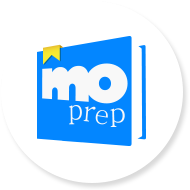Scheduling Smart: Factors to Consider When Choosing Your Course Schedule
With spring comes a big decision for high school students: picking your classes for next year. Creating a course schedule while accommodating for required classes, your preferred level of difficulty, work load, and personal interest can be difficult. Below are potential factors you should consider to ensure you’re making the best course choices for your personal goals.
Will your class year affect your course options?
In almost all circumstances, the answer is yes! Pre-planning is important when it comes to making sure you’re on the right track and are able to meet all prerequisites for the courses you want to take before graduation. A big factor that may impact your schedule is Advanced Placement testing. With the SAT Subject Tests no longer an option, AP scores are now one of the few scores you can submit to colleges as proof of ability in your area of interest. To be able to submit them to colleges, you will have to have taken the AP course during or prior to your Junior year of high school. During your early high school career, determine which courses you will want to have on your transcript prior to completing your college applications.
Are there some classes that have a larger work load than others?
This will depend on both the course difficulty and the individual teachers/school in which the course is being taught. Have peers who have taken that class experienced difficulty with the workload? Is there typically a lot of outside work assigned in that class? If the answer is yes, it doesn’t mean you shouldn’t take that course, but it does indicate that you may not want to take it concurrently with other difficult courses - unless you have the time and capacity for a large workload. This is a trade-off between time and well-being, and an important consideration to take on to ensure that you are also able to perform your best.
Do you have an extenuating circumstance that would require additional measures to take into consideration?
Sometimes particular circumstances require an expert perspective on the most efficient way to accomplish your goals. Student athletes, for example, may require specific courses or standardized tests to be completed prior to being able to get an official offer from some colleges. Additionally, students looking to apply to colleges for highly selective tracks, such as engineering, likely need to bolster their academic record to be competitive in admissions. While course planning early is a great way to start thinking about your specific needs and goals, it can be difficult to take all of the factors that impact your course choices into consideration. For expert advice on scheduling your courses, contacting a local Independent Educational Consultant is the best way to answer specific questions about your personal education track, as well as get an expert opinion on how your course selection may impact the strength of your college application.
